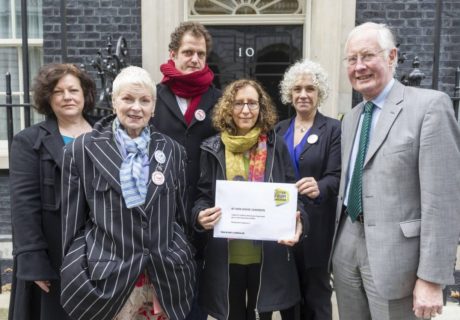Organic retail sales in the UK are on the move again and growth, though modest, are outpacing conventional sales. But organic’s share of total food and drink sales stubbornly refuses to move. At just below 2% it’s significantly lower than that of other European countries with mature organic markets – it’s 3.7% in Germany, 3.59% in Sweden (which projects market growth of 25% in 2015), 6.5% in Switzerland and 2.4% in France*.
So, any new initiative that increases availability of organic food and encourages more conventional farmers to convert is important and welcome. Enter Aldi (see story).
Aldi’s announcement that it is to launch an organic fruit and vegetable offer in early 2015 is significant and the Soil Association has welcomed the increased access to organic that it should bring.
Aldi’s main point of difference on organic is its pricing. It says it will offer organic fruit and veg typically at 25% less than its supermarket rivals. In fact, the story the retailer chose to tell the media was constructed almost entirely around the phrase “affordable organic” – the exact words that appeared in headlines everywhere from the Daily Mail to Good Housekeeping.
Aldi’s emphasis on price is hardly surprising. It’s a discounter, after all. But how will it achieve price points 25% lower than Tesco or Sainsbury’s, and can its pricing strategy ever be squared with organic sector concerns that retail prices should reflect ‘true food costs’? The company told Natural Products that increased volume had allowed it to “fractionalize” its costs, and “not at the expense of suppliers, customers or quality”. It says that its suppliers appreciate those “significantly increased volumes”.
Not everyone is convinced. Blogging at the website of the Sustainable Food Trust – which promotes the concept of true cost food accounting – organic grower, Alicia Miller, warns that “shaving 25% off the price of organic effectively removes the organic premium”. This, she says, raises questions about the viability of Aldi’s pricing strategy for organic. The Sustainable Food Trust says it wants to encourage a “deeper conversation” about the way we produce our food and warns that a narrow focus on price is a distraction from that.
For now, we don’t know whether Aldi’s well publicized launch marks the beginning of a long-term commitment to organic, or if it is a bit of commercial manoeuvring aimed at stealing a few more ABC1s from its supermarket rivals.
What we do know is that price is a perennially tricky issue for the organic sector. Some years ago Jamie Oliver made the comment that “the price of organic food is the right price”. It played well with the organic industry and its supporters. But as research has shown time and again, price is the biggest single obstacle to purchase cited by occasional or non-users of organic food. And no matter how distorted the price of food produced by intensive systems may be (all those conveniently forgotten externalities), you have to be careful what you wish for when you encourage a discussion on the ‘real cost of cheap food’. There’s the real risk both of appearing insensitive to people struggling simply to get by, and of perpetuating the (unfair) charge of being ‘elitist’.
So, can we really afford ‘affordable’ organic? Don’t ask.
*IFOAM EU Group
 By Jim Manson
By Jim Manson
Natural Products editor and environment journalist





